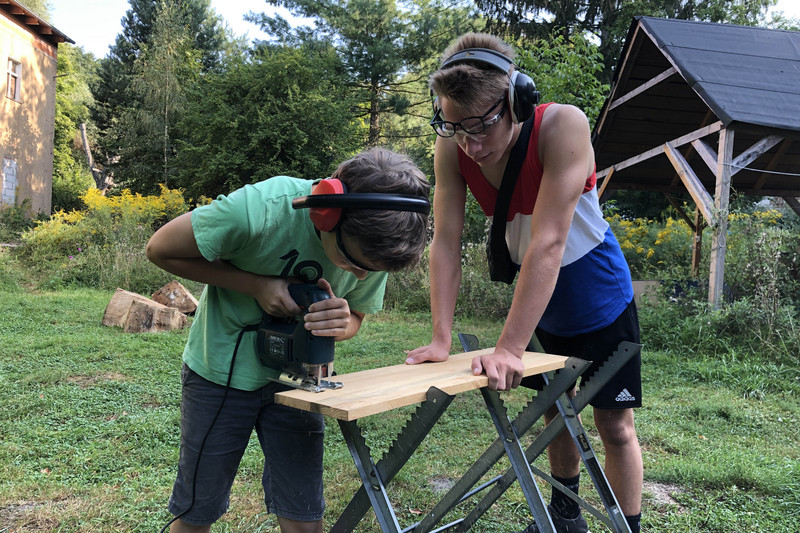Social Learning in Times of Change: Jugendschule Strausberg

Puberty is a challenging time for most young people. Finding one’s own identity and developing ideas for the future – that can sometimes be difficult. Pressures such as the coronavirus pandemic, the war in Ukraine and other global crises, but also dynamic changes in working life are the source of many questions for adolescents. Timo Nadolny, Director of Jugendschule Strausberg, is convinced that “no one can plan ahead for the young people of today, or even guarantee them a safe path into work and society. Therefore, it is of tremendous importance for them to know their own strengths, develop solution-oriented and innovative thought processes and be aware of the community.” That is exactly what Montessori Stiftung Berlin wants to enable twelve- to sixteen-year-old pupils at Montessori Campus Berlin Köpenick to do with the Jugendschule Strausberg project. Located in Strausberg (State of Brandenburg), 35 kilometres east of the capital city, the school is designed according to the Erdkinder programme: a concept for extracurricular learning centres that is part of the Montessori curriculum but has so far only been implemented at a few locations.
Here, the youth learn to become socially, emotionally and economically independent and to take responsibility for each other and their surroundings. They are directly involved in decisions about everyday school life and the development of the grounds and shape their learning environment together with the educators. In doing so, they can try practising their skills, develop them further and put them to the service of the community. “The Jugendschule Strausberg school is an exciting answer to many pressing questions of our time”, highlights SAGST project manager Andreas Rebmann. “It is consistently geared to the individual needs of young people. The youth decide for themselves when and how long they attend the extracurricular learning centre. But that is not the only reason why this school offers a convincing alternative to existing offers in the independent school system.” Its grounds include three large buildings in need of renovation and several outbuildings, as well as orchards, a small forest and a pond. Here, the young people will create an agricultural establishment, a farm shop and a hostel in the next few years under the competent guidance of educators and experts. The first step, however, is the construction of various accommodation facilities and educational areas. The Software AG Foundation is supporting this innovative project with the ecologically sustainable interior furnishings of a classroom building and the design of the outdoor facilities.
